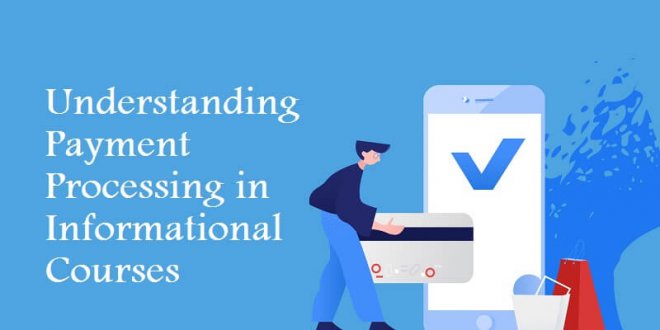Informational courses have become an increasingly popular product to sell online, but did you know that they require a particular, high-risk type of payment processing? Yes, selling your knowledge online isn’t as easy as it would seem. In this article, we will go through all the potential challenges related to payment processing for courses. Are you interested? Then, we encourage you to read on!
Understanding Payment Processing in Informational Courses
Payment processing for informational courses refers to the methods and systems used to handle financial transactions for online educational content. In this case, these are the high-risk methods. Why is it so?
While informational courses aren’t exactly illegal or operating in the gray area of the law; they are quite a problematic product. They come with a high risk of returns or chargebacks, as many people may attempt to go through a course or copy it and then get their money back – simply commit fraud. Banks cannot ignore it; thus they impose the high-risk label on informational-courses-selling companies.
As a high-risk business, this means that payment processing in informational courses will be a bit more expensive and have extra anti-fraud measures. This has both some advantages and disadvantages, but considering the susceptibility of this industry to fraud; it’s often for the better.
Common Challenges in Payment Processing for Courses
Payment processing for courses faces some quite significant challenges. You need to be aware of them to be able to mitigate the negative consequences that they can have and to optimize your income and processes. Therefore, we’ve prepared a list of the most common obstacles for you!
- High transaction volumes – One of the primary challenges in payment processing for online courses is managing high volumes of transactions. Course providers often experience spikes in transactions during promotional periods or course launches; necessitating robust systems that can handle these surges without impacting performance. This means that you need a system that is both efficient and doesn’t cost you too much when not used to its full potential.
- International transactions and currency conversion – As informational courses often attract a global audience (especially those in English), dealing with international transactions and currency conversion becomes a key concern. You must find a provider that will ensure seamless currency exchange processes and compliance with various international payment norms. But, looking for one who matches this description can be complex and time-consuming.
- Security concerns and data protection – In an era where data breaches are commonplace, ensuring the security of payment data is paramount. Course providers must implement stringent security measures; adhere to Payment Card Industry Data Security Standard (PCI DSS) compliance, and protect sensitive customer information from potential cyber threats. This is also one of the reasons they are deemed high-risk. But, the payment processing methods for informational courses often provide extra security measures to ensure that your and your customers’ money and data are safe.
The Takeaway
So, to sum it all up: the main challenges in payment processing for informational courses include high transaction volumes and seasonality, handling international transactions, and the need for better security. However, with a high-risk merchant account, you should be able to overcome them easily.
 free html design Free html design templates
free html design Free html design templates






